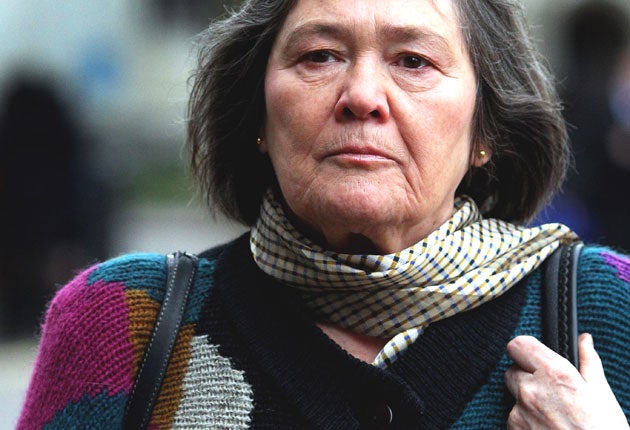Short relives the day Blair silenced her for criticising the Iraq war
Former PM 'was willing to be deceitful because he thought conflict was right'

Your support helps us to tell the story
From reproductive rights to climate change to Big Tech, The Independent is on the ground when the story is developing. Whether it's investigating the financials of Elon Musk's pro-Trump PAC or producing our latest documentary, 'The A Word', which shines a light on the American women fighting for reproductive rights, we know how important it is to parse out the facts from the messaging.
At such a critical moment in US history, we need reporters on the ground. Your donation allows us to keep sending journalists to speak to both sides of the story.
The Independent is trusted by Americans across the entire political spectrum. And unlike many other quality news outlets, we choose not to lock Americans out of our reporting and analysis with paywalls. We believe quality journalism should be available to everyone, paid for by those who can afford it.
Your support makes all the difference.Tony Blair was prepared to "deceive" Parliament over Iraq and freeze out opposition within his Government because of his unshakeable belief that it was right to topple Saddam Hussein, a former cabinet minister has said.
Clare Short, who was the International Development Secretary before resigning shortly after the March 2003 invasion, also revealed that she was "jeered" by cabinet colleagues and told to be quiet by Mr Blair when she attempted to dispute the legality of the war. She added that Gordon Brown had complained to her that Mr Blair was "obsessed with his legacy" and was determined to use a short, decisive victory in Iraq to secure it.
In the most ferocious attack on Mr Blair's style of government heard by Sir John Chilcot's inquiry to date, Ms Short said the former Prime Minister had ignored warnings that post-war preparations were not ready because he was "frantic" to give his backing to President Bush. Plans on Iraq were decided by a small group of his "mates", while she was frozen out during the summer of 2002.
"I'm not saying he was insincere," she said. "I think he was willing to be deceitful about it because he thought it was right."
Ms Short, who became the first MP to be given a round of applause after her evidence, told the Iraq Inquiry that Lord Goldsmith, the former Attorney General who gave the legal green light for military action, misled the Cabinet in doing so. While Lord Goldsmith told the Cabinet on 17 March that the war would be legal, just 10 days earlier he had advised the Prime Minister that while a "reasonable case" could be made for the invasion's legality, he could not guarantee that a court would agree. "I think for the Attorney General to come and say there's unequivocal legal authority to go war was misleading," she said.
She also directly challenged Lord Goldsmith's claim that ministers declined the chance to debate the legality of the war. Ms Short added that Lord Goldsmith had been "leaned on" and excluded from decisions in an attempt to force him to change his mind over the legality of the war, something he has denied.
She said that Mr Blair used "secretiveness and deception" to take Britain to war, while the checks on his power had "broken down quite badly" during his drive to join the US-led invasion. In particular, she said a tactic to "blame the French" for vetoing any further action against Saddam was "a deliberate lie". Ms Short added that France and other UN members may have backed military action at a later date.
"I noticed Tony Blair in his evidence to you kept saying, 'I had to decide, I had to decide.' And indeed that's how he behaved. But that is not meant to be our system of government," she said. "When you add secrecy and deceit the system becomes positively dangerous."
A letter published by the inquiry yesterday showed that Ms Short had warned Mr Blair before the invasion that preparations for the reconstruction of Iraq were not ready and that military action should be delayed. In the correspondence, sent two weeks before the war, she warned of a "possible humanitarian crisis" unless planners were given more time.
She said that the US body overseeing the post-war strategy was "under-staffed, under-resourced and under-prepared for the scale of the challenge" as the war approached. "You should be aware that the US and the international humanitarian community are not properly prepared to deal with the immediate humanitarian concerns," she wrote. "A little more time would make the US much better able to deal with some of the humanitarian consequences of conflict."
Join our commenting forum
Join thought-provoking conversations, follow other Independent readers and see their replies
Comments